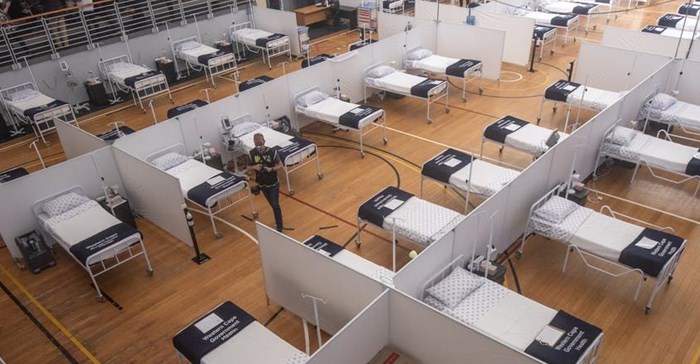






Research conducted in sub-Saharan Africa has shown the valuable role that medical students can play in supporting healthcare delivery. This includes improving the quality of patient care.
Questions are sometimes raised about whether students in training can be a burden on the health system. A Ugandan study, for example, found that some managers believed students were a drain on resources.
Our view, however, is that undergraduate students training to be health professionals are an untapped resource. We conducted research into the issue by exploring the experiences of managers and clinicians with students learning in their health facilities in South Africa.
We interviewed staff from eight facilities that had been receiving students across a range of medical disciplines for many years. The students have been part of a programme initiated by the Faculty of Medicine and Health Sciences at Stellenbosch University in the 1990s to train students to deliver primary healthcare services.
In the programme, undergraduate health professionals were placed in over 80 rural and urban public health facilities. They worked under the supervision of a clinician already at the facility. These sites included regional and district hospitals, community health centres, clinics, rehabilitation centres, hospices, and other non-governmental organisations. Students came from various disciplines – dietetics, medicine, nursing, occupational therapy, physiotherapy, and speech-language and hearing therapy.
Our research showed that involving senior health science students in the everyday practice of healthcare had a number of positive outcomes. The students helped address the workload in health facilities and improved the quality of patient care. They increased patient and staff satisfaction and encouraged a learning culture.
Our findings indicate that students can make a major contribution to healthcare, particularly during times such as this.
The students in the sampled facilities were training in medicine, occupational therapy, physiotherapy and dietetics.
Staff in the facilities described student involvement as being beneficial to the healthcare service, for both staff and patients. They also said having them there was valuable for the facility itself. Students were described as assisting with workload, increasing patient satisfaction, improving patient care, and enhancing community perceptions of the service.
The students were also seen to facilitate the development of a learning environment. Examples included stimulating clinicians to keep up to date with evidence, and encouraging the use of current protocols. Individuals experienced greater job satisfaction and personal growth through this engagement. Students were not felt to be a burden.
But we found that, to get these benefits, students needed to be involved in routine work activities. This gave them the opportunity to learn from everyday practice.
Other factors that contributed to the students’ effectiveness were: their skills and knowledge, their seniority, and clear guidance from the university.
Our findings echo earlier research. A previous South African study in rural communities described how healthcare staff, patients and community members all perceived that students provided benefits to healthcare, offering extra hands and easing the patient load.
In Uganda, the contribution of health science students working in peripheral health facilities was highly valued by communities, who saw them as caring, compassionate, and available anytime.
In Sweden, medical students in a hospital previously focused on healthcare delivery improved the learning climate of the organisation and enhanced the structure of the clinical work.
Over the last 15 years, South African students have increasingly been drawn into a range of training sites outside the central academic hospitals. As a result guidelines have been issued on their placement in a wider range of healthcare facilities. These call on higher education institutions and health services to work together in achieving distributed training.
All health professional students left health service sites when universities went into obligatory recess at the start of the national COVID-19 lockdown. Senior students can’t learn in the classroom because their training is very practical. And it hasn’t always been straightforward getting them back into their clinical placements.
Our hope is that healthcare facilities will welcome senior students back into these environments. We also hope the managers of these facilities will actively seek the placement of students. This is particularly true as the country responds to Covid-19.
In addition, some aspects of healthcare are receiving less attention because resources are required to address the pandemic. These include TB prevention and case finding, routine under-five child health activities, support and rehabilitation for people with disabilities, and management of chronic illnesses.
Given the current demands on health facility managers and clinicians, universities could valuably remind training partners of the role that students can play in supporting healthcare delivery.
This article is republished from The Conversation under a Creative Commons license. Read the original article.![]()

The Conversation Africa is an independent source of news and views from the academic and research community. Its aim is to promote better understanding of current affairs and complex issues, and allow for a better quality of public discourse and conversation.
Go to: https://theconversation.com/africa